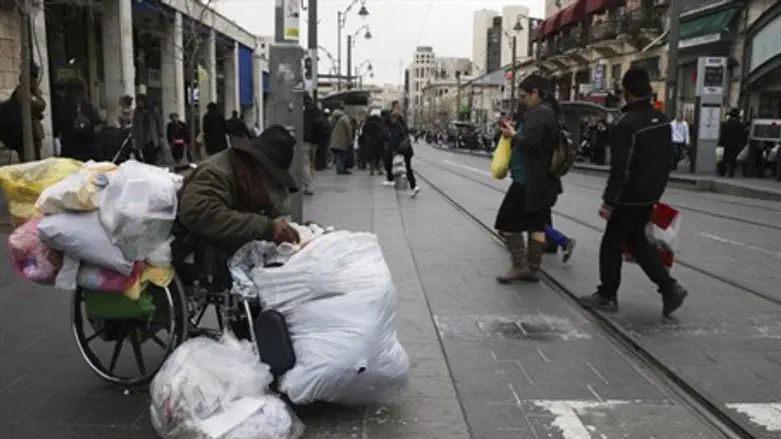
One week after the National Insurance Institute (NII/Bituach Leumi) poverty report which shocked Israel, the Latet Organization released its own study on poverty in Israel on Tuesday, as part of its yearly Alternative Poverty Report with the Tel Aviv-Yafo Academic College.
The second annual report is based on a multidimensional index. While the official poverty report examines life below the poverty line, the Latet report measures the degree of shortage within the population in five areas: housing, education, health, food security and ability to meet cost of living.
22% of Israelis live below the poverty line, according to the official poverty report - but the Latet report points to a 31.9% poverty rate overall, with the difference including Israelis who hover above the poverty line but still struggle to survive. Overall, 2.624 million Israelis live from paycheck to paycheck, including 1 million children.
62% of parents have had to pass on drugs or medical care this year for their children on a regular basis (12%) or sometimes (50%). 37% of parents supported their children by skipping meals; 27% of children reported feeling hungry at some point over the past year. 14% of respondents reported going an entire day without food, and/or had to resort to begging or stealing in order to eat.
The elderly face the worst situation, with no fewer than 90% of elderly respondents unable to meet payments for long-term care or in-home care. 43% of elderly welfare recipients lack nutritious meals; 58% faced legal hurdles over housing or eviction notices; 54% were without water or electricity.
47% of elderly respondents supported by the state work and still live in poverty; of those, 46% work part-time, and 71% earn a salary of 4,000 shekels per month.
Latet will present the report to a Knesset panel later Tuesday, including Finance Minister Moshe Kahlon (Kulanu) and Finance Ministry Director Shai Bavad.